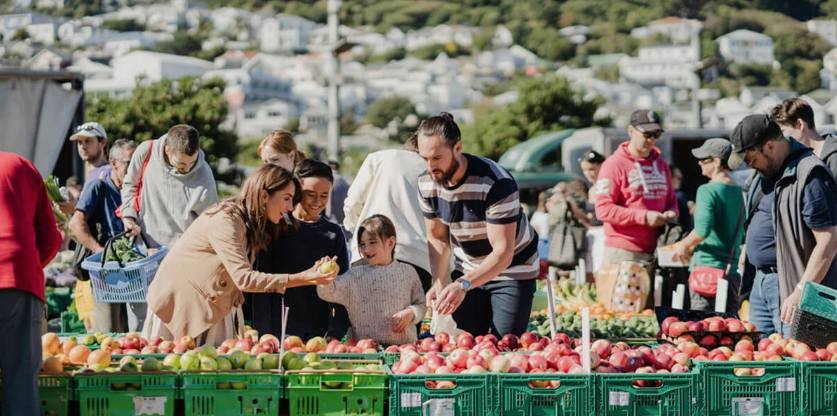Regional Food System Strategy
Building a local, sustainable, and equitable food system in the Wellington-Wairarapa-Horowhenua region.

Photo / Ryan Domenico
As our region grows, how do we ensure everyone has equitable access to healthy, affordable food?
There is growing awareness that for food production to be economically and environmentally viable over the long term and for future generations, we need to address it as a system. If we don’t look at our food system in a holistic way, our current way of doing things in terms of food production and consumption patterns left unchanged, will lead to catastrophic environmental and climate impacts, reducing land productivity, significantly impacting the economy and worsening human health outcomes. The good news is that looking at things through a holistic lense, can help build a better model for our food system.
The Regional Food System Strategy Project, is designed to be a big step towards achieving a sustainable, local, equitable food system. This is one of the regional projects within WRLC’s work programme.
Being led by Senior Public Health Advisor Tessa Acker, This project’s overarching aim is to foster a regionally coordinated and comprehensive approach to supporting sustainable and accessible food production at all scales in region to meet changing consumer demands, stakeholder expectations, urban development, and more exacting national, regional and local policy requirements including emissions reduction.
The Strategy will provide a platform for implementation plans across the region for the following outcomes:
- A collective approach or framework for realising the equity, potential and aspirations of Māori in diversifying land-use and unlocking the Māori food economy.
- A quantitative understanding of current and future food production, supply chains and demand for food mapped across the region.
- A consolidated spatial plan for sustainable management of the region’s productive land.
- A number of regional initiatives and approaches including increased supply and demand for local, seasonal, affordable and low carbon food and reducing/preventing food wastage.
- Create an actionable plan that prioritises food security, food sovereignty and community wellbeing through sustainable and local methods that benefit all aspects of health
- Strengthen community, iwi and council partnerships across the region
- Embed Mātauranga Māori concepts of food and kaitiakitanga. Support opportunities for the Māori food economy as determined by Māori
- Inform future policy on aspects such as urban development, economic planning and climate change.
The strategy will honour a collective approach to inform its development, through connection, engagement and consultation with many different stakeholders, including hapu/iwi/manawhenua, kai producers, community organisations, council, and central government. Benefits are expected to be seen in health and social wellbeing, local economies, employment, environment and climate change.
The key stages of this project involve: research and evidence gathering to inform the draft strategy, followed by then taking this through engagement, consultation and workshops, these will inform and feed into the Strategy, resulting in the final strategy which is due for completion in September 2023.
Nā tō rourou, nā taku rourouka ora ai te iwi. “With your food basket and my food basket, the people will thrive.”

